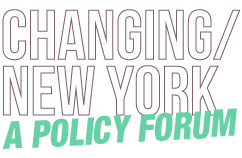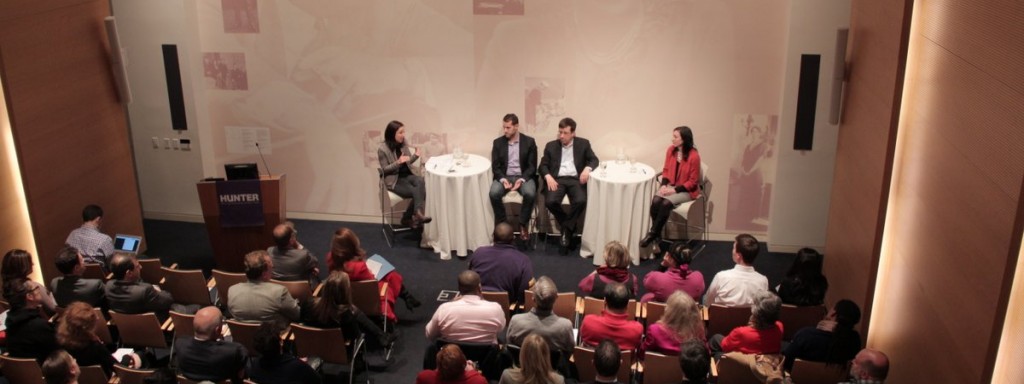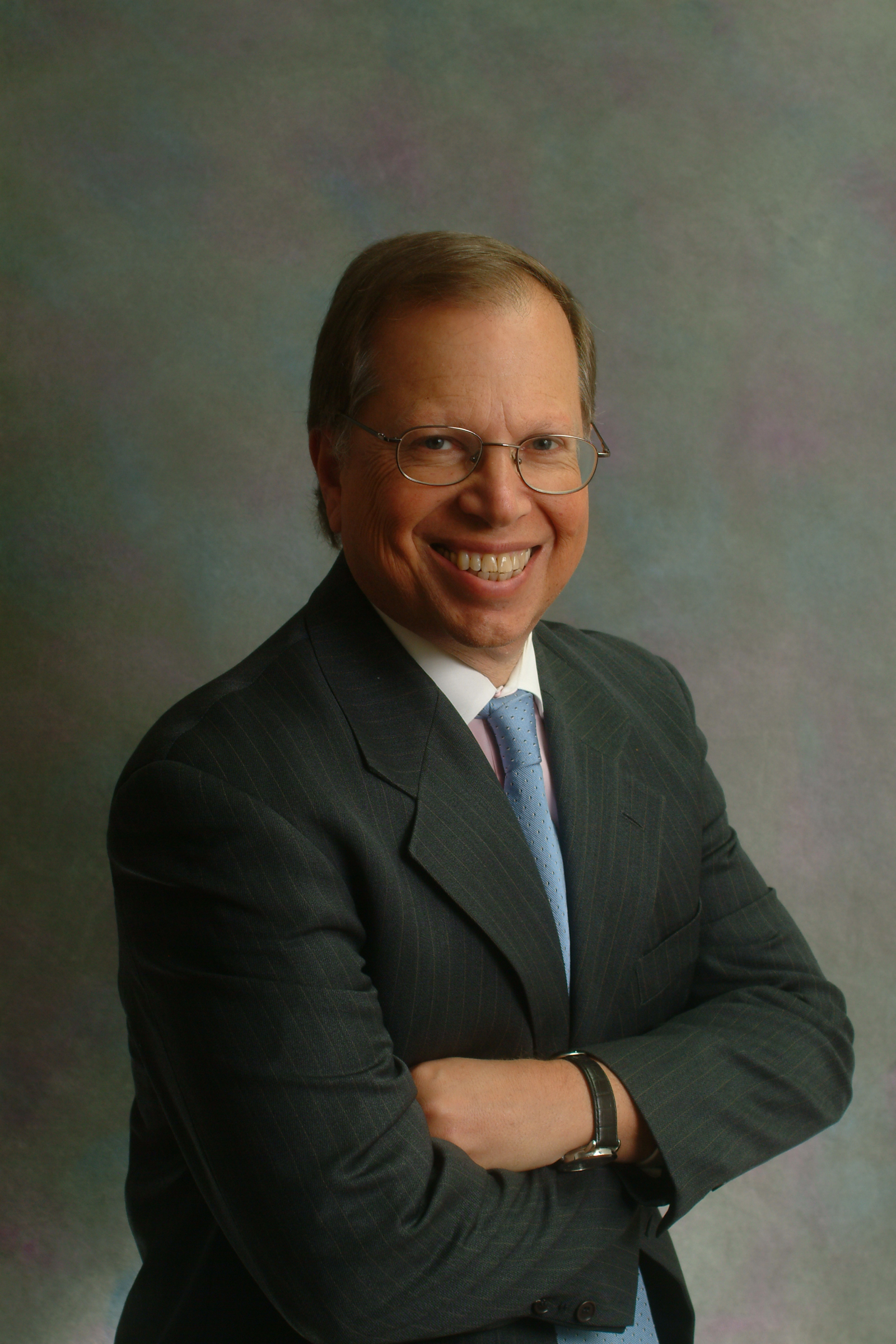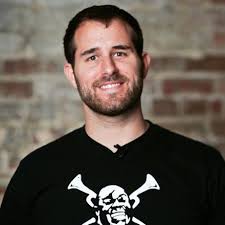PROGRAM
The explosive growth of New York’s tech industry in the last decade has reshaped the city’s economy and its demographics — and has kept New York at the forefront in a rapidly changing digital landscape. Over the last decade, Bloomberg administration policies aimed to foster this growth in the tech and information sector. What new directions should the new de Blasio administration consider in order to ensure — and strengthen — New York’s role at the forefront of innovation?
We were joined at Roosevelt House for the latest in our continuing series, “Changing New York,” as Manoush Zomorodi, host of WNYC’s “New Tech City,” led a distinguished panel of experts in a wide-ranging conversation exploring the new policies, priorities and strategies that the de Blasio administration ought to focus on in the years ahead. Each brings a business and personal perspective to the crucial questions of what the new digital New York might look like — and how the new administration can help make it possible.
Speakers: Jessica Lawrence, Executive Director, NY Tech Meetup; Michael Mandel, Chief Economic Strategist at the Progressive Policy Institute and author of Building a Digital City: The Growth and Impact of New York City’s Tech/Information Sector; and Steve Schlafman, a principal at RRE Ventures, who also writes the blog “Schlaf Notes: The Chronicles of an Accidental VC,” about trends and his “adventures in startup land.” Introducing the panel was Stanley S. Litow, Vice President, Corporate Citizenship and Corporate Affairs of IBM, President of the IBM Foundation, and member of the Roosevelt House Advisory Board.
SPEAKERS
Jessica Lawrence
Jessica Lawrence is the Executive Director of NY Tech Meetup (NYTM), the largest Meetup in the world and a 36,000-member non-profit organization helping to build a sustainable and diverse technology industry in New York. Prior to her work with NYTM, Jessica was the CEO of Girl Scouts of San Gorgonio Council in Southern California. She was selected as one of The Daily Muse’s 12 Women to Watch in 2012, and as one of the Crain’s New York Business People to Watch in Silicon Alley 2013, among other awards. Jessica’s writing has been featured on the Harvard Business Review blog, Forbes.com, and in many other publications, and she also speaks frequently on technology startups, the New York technology community, women in tech, organizational development and culture, the future of work, and non-profit management.
Stanley S. Litow
Stanley S. Litow is IBM’s Vice President of Corporate Citizenship & Corporate Affairs and President of IBM’s Foundation. Under his leadership, IBM has been widely regarded as the global leader in Corporate Citizenship, and praised for societal and environmental leadership, labor practices, and civic leadership. Under Mr. Litow, IBM has developed innovative voice recognition technology to help children and adults learn to read, a humanitarian virtual supercomputer to speed research on cancer and AIDS, and new digital imaging technology to improve water quality. Mr. Litow helped devise IBM’s Corporate Service Corps, a corporate version of the Peace Corps, to train and deploy thousands of IBM’s future leaders; the Pathways in Technology Early College High School (P-TECH), a grade 9 through 14 schools initiative to engage companies, colleges, communities and schools to help strengthen America’s economic competitiveness by connecting education to jobs; and IBM’s Smarter Cities Challenge, which is helping 100 cities worldwide become more effective.
Dr. Michael Mandel
Dr. Michael Mandel is chief economic strategist at the Progressive Policy Institute in Washington, where he supervises PPI’s research and policy work across a wide range of topics, including the data-driven economy, the impact of regulation on innovation, and policies to improve production, investment and job growth. Mandel also holds an appointment as senior fellow at Wharton’s Mack Institute for Innovation Management at the University of Pennsylvania, and serves as president and founder of South Mountain Economics LLC, which provides expertise on emerging occupations and emerging industries. He received a Ph.D. in economics from Harvard University and formerly served as chief economist at BusinessWeek, where he directed the magazine’s coverage of the domestic and global economies. He received multiple awards for his work, including the Gerald Loeb Award for Business and Financial Journalism and is the author of four books including Rational Exuberance: Silencing the Enemies of Growth and Why the Future Is Better Than You Think.
Steve Schlafman
Steve Schlafman is a Principal at RRE Ventures, focused on early stage investments in mobile services, hardware, and marketplaces. Prior to joining RRE, he was a Principal at Lerer Ventures, one of NYC’s most active seed funds. He was previously VP of Business Development at Stickybits Inc./Turntable.fm and Director of Venture Investments at The Kraft Group, a diversified holding company focused on sports & entertainment, paper & packaging, real estate development, and private equity. He started his career at Massive Inc. and Microsoft in a variety of Business Development, Strategy and Corporate Finance roles. A graduate of Northeastern University, he regularly teaches at GA and Skillshare, and has guest lectured at Columbia Business School, Wharton, and Harvard Business School.
Manoush Zomorodi
Manoush Zomorodi is the host and managing editor of New Tech City on WNYC. A graduate of Georgetown University, She has been a producer, correspondent and presenter for the BBC, a reporter and anchor for Thomson Reuters Television, and a media consultant to non-profits including the Council on Foreign Relations, Human Rights Watch and the Gates Foundation. She is also the author ofCamera Ready: How to Present Your Best Self and Ideas On Air or Online. She lives in Brooklyn with her husband, NY1 reporter and anchor Josh Robin, and their two kids.
EVENT SUMMARY – New York: A City for Tech Innovation (recap)
The speakers: Jessica Lawrence, Executive Director, NY Tech Meetup; Michael Mandel, Chief Economic Strategist at the Progressive Policy Institute and author of Building a Digital City: The Growth and Impact of New York City’s Tech/Information Sector; Steve Schlafman, a principal at RRE Ventures, who also writes the blog “Schlaf Notes: The Chronicles of an Accidental VC,” about trends and his “adventures in startup land”; and Stanley S. Litow, Vice President, Corporate Citizenship and Corporate Affairs of IBM, President of the IBM Foundation, and member of the Roosevelt House Advisory Board, who made opening remarks.
The focus: How to maintain and expand the explosive growth of New York’s tech industry in the last decade. What skills, what education is necessary? How do we ensure equal access to technology so that there is a level playing field for all – and those in every borough? The title of the panel ends with a question mark, but Ms. Zomorodi opening the panel said it should be punctuated differently: “New York City, a city for tech innovation exclamation point.” (11:00)
New York, Ms. Zomorodi pointed out, is the number two tech city in America (11:08). And as the de Blasio administration moves forward, she proposed, “Legislation needs to keep up with the changing economy” (12:00) to guarantee it stays that way.
Panelists discussed the ways in which the tech industry has reshaped the city’s economy and its demographics – and debated how even the meaning and scope of what the “tech industry” is has changed significantly. The panel explored what the future of the city and its workforce will look like as the tech industry and technology itself continue to evolve.
Social media has changed citizen involvement in government – “Citizen engagement was about inviting people to forums to express their opinions,” Mr. Litow said (03:38). Now “people can express their opinions instantly. They don’t have to come to a forum. They can become a participant” immediately.
What are the jobs of the future? As Jessica Lawrence put it, every New York business – from finance to media to retail and the law requires “technology literate” employees. “You don’t think of Macy’s as a tech company,” she said, “but the nature of all business” has changed (20:15). Steve Schlafman added, “Tech touches everything…. Fashion, art, finance, commerce.” Technology is a layer that touches” all these industries, he said. “It is not its own beast.” (20:50) As Michael Mandel put it, “Jobs that were formerly physical… will be internet enabled in some way,” making the question of access “essential,” so that people can not only use but build the internet of the future.” (30:39). Jessica Lawrence said, “Everyone is going to need fundamental” tech literacy in the future. “It will be a basic skill, like driving.”
And Steve Schlafman urged that in education and training, the city needs to “point people toward developing skills for the long-term – not two years but five years.” (23:42). There is a “great need for designers and developers” in every industry, Steve Schlafman said. (17:20) “I get a dozen emails a day: the biggest need is development talent.” (17:53). As Michael Mandel put it, “The next wave of technology may be different than the wave that we’re in,” which is why in education and training the city needs to think of “skills more broadly.” (51:50). Tech growth means that there is a “broader employment” in all areas, including in back office jobs “reaching in deeply to the community.” (19:00)
Tech growth has changed the city and every business in it, Jessica Lawrence said, arguing that there is “a lot more home grown tech in this city: college students creating websites at hackathons in 48 hours,” on the one hand (16:00), but on the other “Google also has 4000 employees in the city.”
Over the last decade, Bloomberg administration policies aimed to foster this growth in the tech and information sector. What new directions should the new de Blasio administration consider in order to ensure – and strengthen – New York’s role at the forefront of innovation?The panel agreed that outmoded ideas of regulation often hamper creativity – but new policies related to new pressures and new complexities are required, for both economic growth and to ensure future innovation. “The sharing economy makes the economy more efficient,” Michael Mandel said. (39:13) “It takes capital that is not being used and puts it to better use. It does redistribute who gets what.” Mandel pointed to studies that show that a “wide variety of jobs creates a lot of opportunity” and that the tech boom has meant that the percentage of blacks and Hispanics in computer jobs “has soared.” (14:45) And the new tech economy is a more broad-based one: More jobs are being created in the boroughs and the new tech industries are not Manhattan-centric. (15:06)
As Jessica Lawrence put it, “What regulations really do need to be in place to truly keep people safe that don’t cross the line… and inhibit innovation?” (43:45). Michael Mandel said that a new view of how technology affects the economy and politics plays well with Mayor de Blasio’s agenda for the city: “Tech innovation enables progressive goals.” (45:11).
The future of the city – and the creation of economic and educational policies for broad opportunity here – is related, Michael Mandel said, to “a question of digital readiness” (32:50) and to wide access to training and to technology itself, so that “people can not only use but build the internet of the future.” (34:05) “A kid using a phone to play a game is very different from a kid knowing how to build the game,” he said.
Public Programs at Roosevelt House are free to the public and open with advance registration, made possible through the support of the Charina Endowment Fund and other generous donors.
RESOURCES
- Dr. Michael Mandel in The New York Times: "New York: The Silicon City"
“For all the talk of New York’s ‘tale of two cities’ economic divide, last week Mayor Bill de Blasio took charge of a local economy that has far outperformed the rest of the country since the financial collapse — and not just in a small corner of Manhattan, but across the city. Driven by the expansion of the technology and information sector, New York City today has more private-sector jobs than during the 2007-8 peak of the finance-driven boom years.”
(January 1, 2014) [Click here to read the whole article.]
- Jim O'Grady and Jonathan Bowles: "Building New York City's Innovation Economy"
“This report finds that New York City’s leading universities and scientific research centers have not become catalysts for entrepreneurship and local economic development the way similar institutions have in other regions. It argues that this is a huge missed opportunity for New York, given the need to diversify the economy and create new engines of job growth. The study details why New York is falling short, showing that university leaders have not done enough to support start-up ventures.
The report is accompanied by the city’s first-ever “Innovation Index,” a package of 49 charts and graphs that show where New York stands compared to other cities and regions on a broad range of indicators measuring both existing science and technology assets and the city’s level of success at commercializing these assets.”
(Published in 2009) [Click here to read the full report (PDF).]













